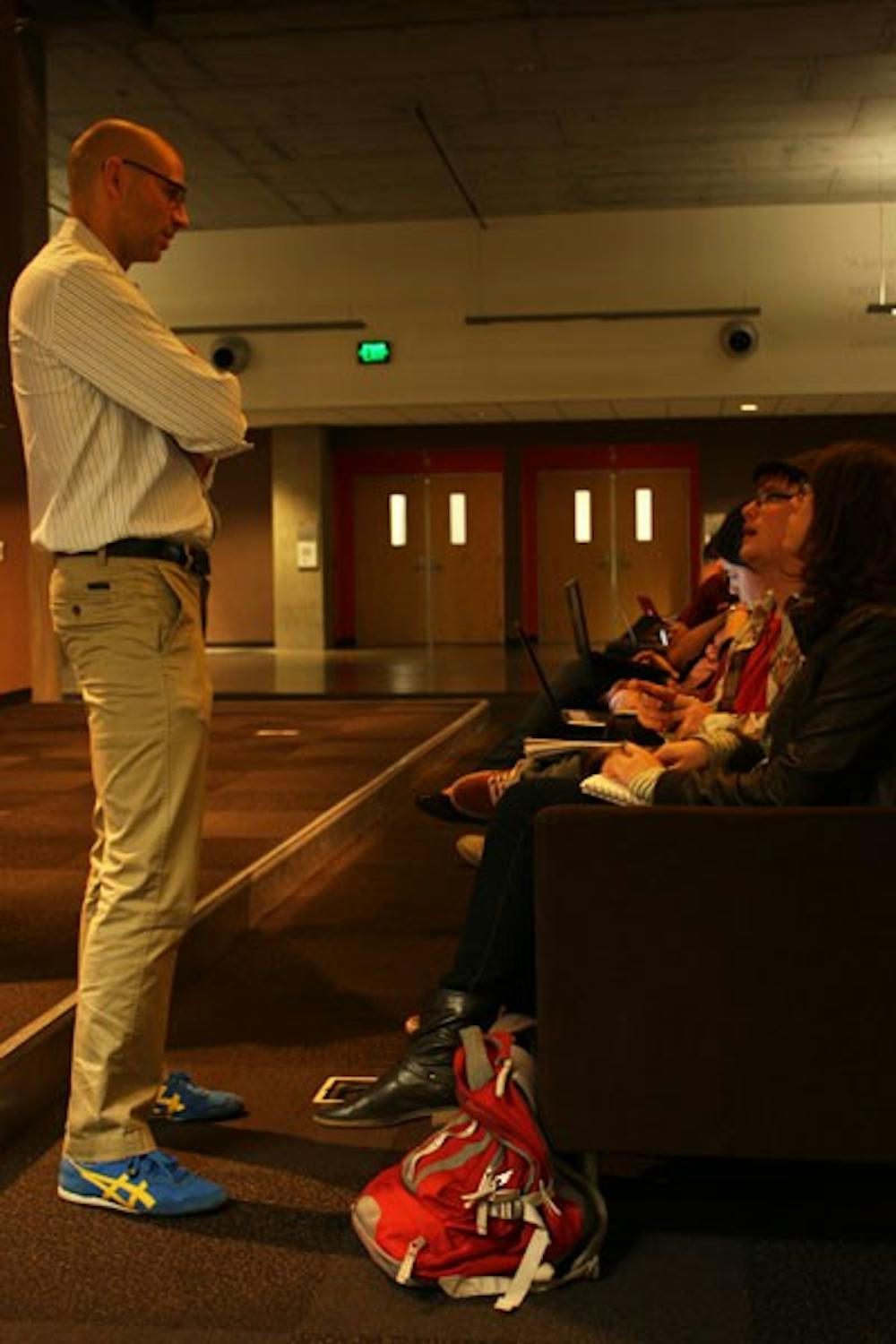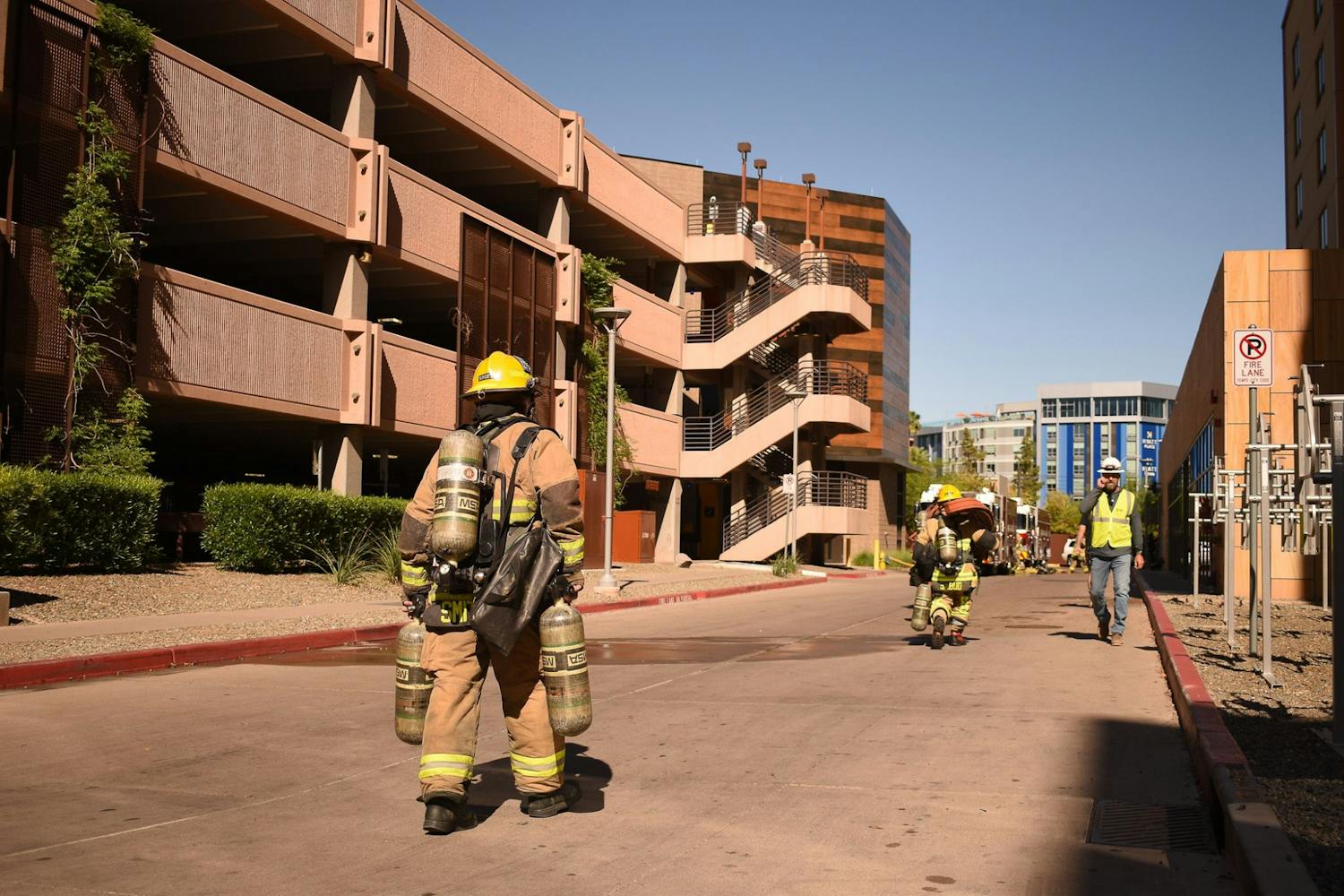 Slate editor David Plotz takes questions from students prior to his speech at the Walter Cronkite School of Journalism and Mass Communication's Must See Monday event. (Photo by Jessie Wardarski)
Slate editor David Plotz takes questions from students prior to his speech at the Walter Cronkite School of Journalism and Mass Communication's Must See Monday event. (Photo by Jessie Wardarski)Slate editor David Plotz said digital journalism’s emphasis on speed is an achievement in real-time coverage but a failure in in-depth storytelling in a speech Monday night on the Downtown campus.
“It’s all about the ‘now,’” Plotz said. “There is an insane pressure to be fast and current.”
Plotz, a Harvard graduate, has been writing with the online publication Slate since its birth in 1996. He became the magazine’s editor in June 2008.
He began the speech, part of the Walter Cronkite School of Journalism and Mass Communication’s Must See Monday lecture series, by discussing an in-depth story he wrote after researching a controversial experiment by American physicist William Shockley.
Shockley, who had earlier received acclaim for his work with creating transistors, became enthralled with genetics and population trends.
He became convinced that less intelligent people were populating faster and donated his own sperm to an organization known colloquially as the “Nobel Prize sperm bank” to spread his own genes.
Plotz ultimately published a book about his findings on Shockley’s experiments.
“There is a value to deeply-reported long-form journalism,” Plotz said.
He said he was only able to complete the story because he was given three months, in comparison to the modern newsroom, where journalists have less time for in-depth stories.
“The greatest achievement is the speed of journalism,” Plotz said. “Everything can be read and digested in minutes.”
The increasing speed of journalism, however, could mean a decrease in a story’s accuracy.
Journalism freshman Miguel Otarola Alfaro, who attended the event, said he embraces the transition from newspaper to digital rather than fearing it.
“When I think of print, I think ‘online’ anyways,” Otarola Alfaro said. “The issue is whether there is accuracy to the story.”
Plotz said nonpartisanship and neutrality are subsiding with the transition to digital media.
Media organizations filter their news for their viewers, he said.
A conservative citizen will watch one channel while a liberal will watch another network, Plotz said.
He said growing social media trends intensify the speed and vitriol of digital journalism.
“This (political) sorting has led to an increase in anger,” Plotz said. “It has become an angrier media marketplace.”
He said news is not “broken” by media organizations anymore, and social media has resulted in news stations simply gathering information and reconstructing it.
Broadcast journalism junior Ashley Shumway said social media deters people from hard news and depth reporting.
“Anyone can be a journalist now with how easy it is to spread news,” Shumway said. “It makes it hard for students who are actually studying to become skilled at it.”
Plotz said a reporter’s job should focus on producing durable hard news stories, not fluff articles or learning social media.
“I’d rather see crappy journalism than a crappy movie review,” Plotz said. “At least there is ambition behind the journalism.”
Reach the reporter at mkthomp5@asu.edu or follow her on Twitter @mariakthompson




